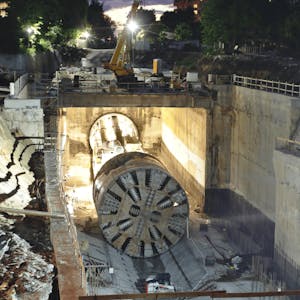Exploratory Data Analysis with MATLAB
About this Course
In this course, you will learn to think like a data scientist and ask questions of your data. You will use interactive features in MATLAB to extract subsets of data and to compute statistics on groups of related data. You will learn to use MATLAB to automatically generate code so you can learn syntax as you explore. You will also use interactive documents, called live scripts, to capture the steps of your analysis, communicate the results, and provide interactive controls allowing others to experiment by selecting groups of data. These skills are valuable for those who have domain knowledge and some exposure to computational tools, but no programming background is required. To be successful in this course, you should have some knowledge of basic statistics (e.g., histograms, averages, standard deviation, curve fitting, interpolation). By the end of this course, you will be able to load data into MATLAB, prepare it for analysis, visualize it, perform basic computations, and communicate your results to others. In your last assignment, you will combine these skills to assess damages following a severe weather event and communicate a polished recommendation based on your analysis of the data. You will be able to visualize the location of these events on a geographic map and create sliding controls allowing you to quickly visualize how a phenomenon changes over time.Created by: MathWorks

Related Online Courses
By the end of this project, you will learn how to use lookup reference, math and text functions in an Excel Spreadsheet by using a free version of Microsoft Office Excel.Created by: Coursera... more
The specialization \"Construction Practices in Deep Excavations and Tunnels\" includes three interconnected courses, each spanning 10 to 12 hours, designed to provide an in-depth understanding of... more
In this course, you will learn the science behind how digital images and video are made, altered, stored, and used. We will look at the vast world of digital imaging, from how computers and digital... more
This specialization is intended for data scientists and software developers to create software that uses commonly available hardware. Students will be introduced to CUDA and libraries that allow... more
In this course, you will step into the shoes of a compliance officer at a major bank, uncovering how generative AI can transform traditional fraud detection methods. With fraudsters becoming... more







